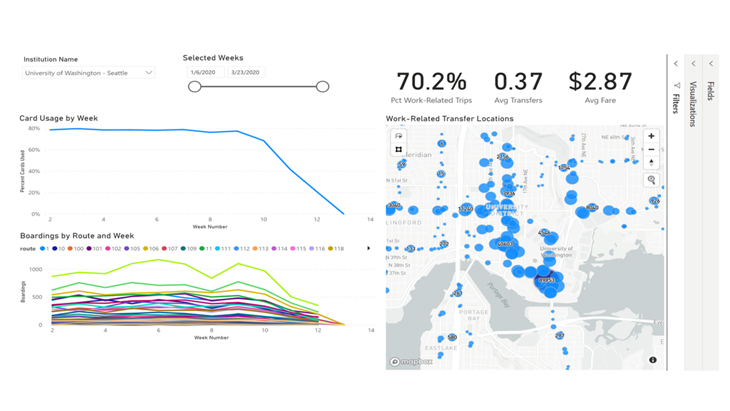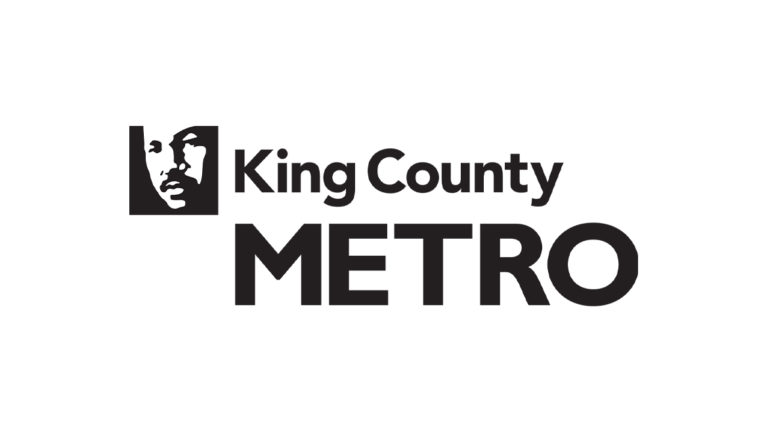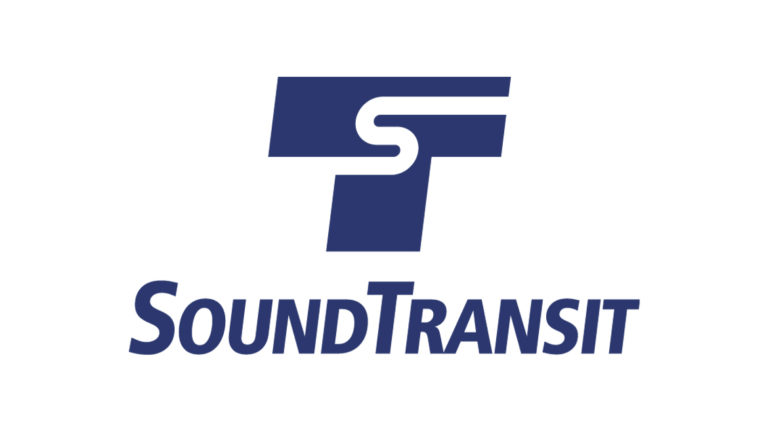
Issue
The COVID-19 pandemic quickly and dramatically changed how millions of people work in our state. Transit agencies had to adapt to new protocols, service levels, and evolving ridership. All these factors impacted the delivery of public transportation in our communities. The ORCA Data Business Intelligence System transforms ridership data into a powerful tool for post-COVID forecasting and transit pattern assessments, which will help to inform ways we can adapt to new-normal circumstances.
Spark
Statistics indicate that road transportation (cars and trucks) contributes more than 60% of greenhouse emissions in the greater Seattle area. Public transit, on the other hand, has a proven record of reducing transportation pollution. Prior to the pandemic, transit riders were taking the equivalent of 190,000 cars off the road every weekday. That’s a simple but effective equation for helping mitigate the effects of climate change. Giving drivers the option to leave their car at home once or twice a week—or more—is often a function of increasing the efficiency of public transit.
Overview
The ORCA Data Business Intelligence tool improves the ability of businesses, educational institutions, and transit agencies to adjust to rapidly changing conditions, as it allows them to easily tap a real-time source of transit ridership data to quickly determine changing transit patterns. This ability has always been important, but it is especially so at a time when travel patterns are changing weekly. This technology has the potential to help synchronize the needs of business and transit to the benefit of the entire community.
Innovation
This project is designed to:
- Build a business intelligence system that provides secure, multi-agency access to ORCA transaction data
- Provide an initial level of analytical capability along with the ability to expand those analytical capabilities, and allows access to summary database analyses to multiple parties (including businesses) based on the Data Sharing Policies adopted by the ORCA Joint Board
- Create a database update process that relies on extraction and fusion of ORCA transaction data from the ORCA Data Warehouse and vehicle location records from transit operators
Impact
One of the most important goals of the ORCA Data Business Intelligence System is to elevate social equity in transit planning and implementation, which benefits the entire community. Studies nationwide have shown that transit plays a foundational role in matters of equity. By using ORCA data along with other available information, transit agencies can make more data-driven decisions in understanding where needs are greatest.
Team
Financial resources and support for this project have come from a wide range of partners, all with a vested interest in helping people move around our region. These include King County Metro, Sound Transit, Amazon, Microsoft, the Bill & Melinda Gates Foundation, REI, and Challenge Seattle. Starbucks has also been an active participant as a major employer and transit stakeholder locally.
This research effort is led by the Washington State Transportation Research Center (TRAC) and system access is managed by King County Metro Transit.
Academic Department
Faculty Leadership
Contributors
- Mark Hallenbeck
- Ryan Avery








